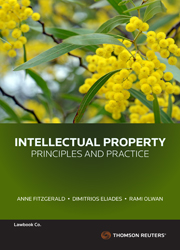Professor Pauline Collins of the University of Southern Queensland School of Law and Justice has published a new article titled 'In search of certainty for military discipline'. The article appears in Volume 52 of the Australian Bar Review. Here is the abstract:
"In 2020 the High Court of Australia yet again addressed the reach of military jurisdiction for criminal offending by military members. This article considers the far-reaching decision in 'Private R v Cowen' (2020) 383 ALR 1 in the context of the state of civil-military relations and discipline in the Australian Defence Force. Five out of the seven judges agreed the defence power under section 51(vi) of the Australian 'Constitution' enables Parliament to decide how the control of the military can occur in disciplining service personnel. The article explores the court’s reasoning and critiques the judgment and its consequences for the civil-military control principle, and the needs of service personnel. The article concludes the area is ripe for Parliament’s attention in bringing military discipline up to 21st century standards."





